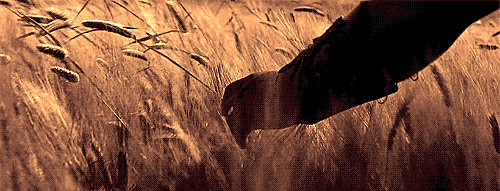
Virtual food guide
Cereal products, include food products resulting from the processing of various cereal grains. They are one of the oldest and most common human foods, from plowed cooked with crushed grain, with cakes, bread to a variety of modern products.

The most important cereal grain supplies are: wheat, rice, corn, rye, barley, oats, millet, sorghum and buckwheat. According to the normal rules of human nutrition grain products form the basis of the food pyramid and should be in your daily diet in the largest quantities. The cereal products include various kinds of breads, cereal, pasta, flour, processed cereal preparations, etc. The products are a source of carbohydrates, vitamins, proteins, minerals and fiber. The nutritional value depends on the type and quality of the grain, the degree of removal of seed coat and embryo and seed production technology of the product.

Cereals can be achieved by more or less dehisced grains, carved it, crushing or grinding. Processes are applied using heat, water or pressure and the addition of additives to raise nutritional and taste the products. Most of the protein, fat and minerals contained in the seed's embryo, and cells in a thin layer just below the pile, fruit and seed. During the process of grain this layer is almost entirely removed, in the form of bran, flour or semolina and contains mainly starch. Also, heat treatment may reduce the grain vitamins.
In 100 grams of grain is on average 66 grams starch, 3 grams fiber, 16 grams of protein, 2 grams of fat, 2 grams of minerals + water. 100 grams of endosperm flour contains 80 grams starch, 0.2 grams fiber, 13 grams of protein, 0.7 gram fat, 0.5 gram + mineral water.
Semolina comprises 100 grams, about 8.7 grams of protein, 76.7 grams of starch, 0.3 grams of fiber, 0.3 grams of minerals, 0.1 milligrams of vitamin B1, 0.03 milligrams of vitamin B2, 0, 7 milligrams of vitamin B3 (PP), 0.06 milligrams of vitamin B6 + water.

Oatmeal typically contains 100 grams, on average: 11.9 grams protein, 69.3 grams of starch, 1.1 grams of fiber, 1.6 grams of minerals, 0.5 milligrams of vitamin B1, 0.15 milligrams of vitamin B2, 0 , 9 milligrams of vitamin B3 (PP), 0.2 milligrams witaminyB6 + water.
Barley pearl contains 100 grams, about 6.8 grams of protein, 74.3 grams of starch, 0.7 grams of fiber, 0.9 grams of minerals, 0.2 milligrams of vitamin B1, 0.08 milligrams of vitamin B2, 2 , 9 milligrams of niacin, 0.2 milligrams of vitamin B6 + water
Roasted buckwheat groats contain 100 grams, about 12.6 grams of protein, 70.1 grams
of starch, 2 grams fiber, 2 grams of minerals,
0.5 milligrams of vitamin B1, vitamin B2 1.3
milligrams, 1.9 milligrams of vitamin PP,
0.6 milligrams of vitamin B6 + water.
Manufacturers offer a variety of grain products improved by combining some of cereals, nuts, honey, vitamins, etc. For example, the petals wrapped, containing many beneficial unsaturated fatty acids, when mixed with corn and other supplements are not only nutritious product but also very attractive taste . Competition will increase the range of manufacturers produced breads, pasta and other products are not always going hand in hand with increased nutritional value. Reaching these products it is good to take into account not only the taste and ease of preparation but the use of natural ingredients in them and the content of synthetic chemicals.

CEREAL PRODUCTS
By the Polish team
